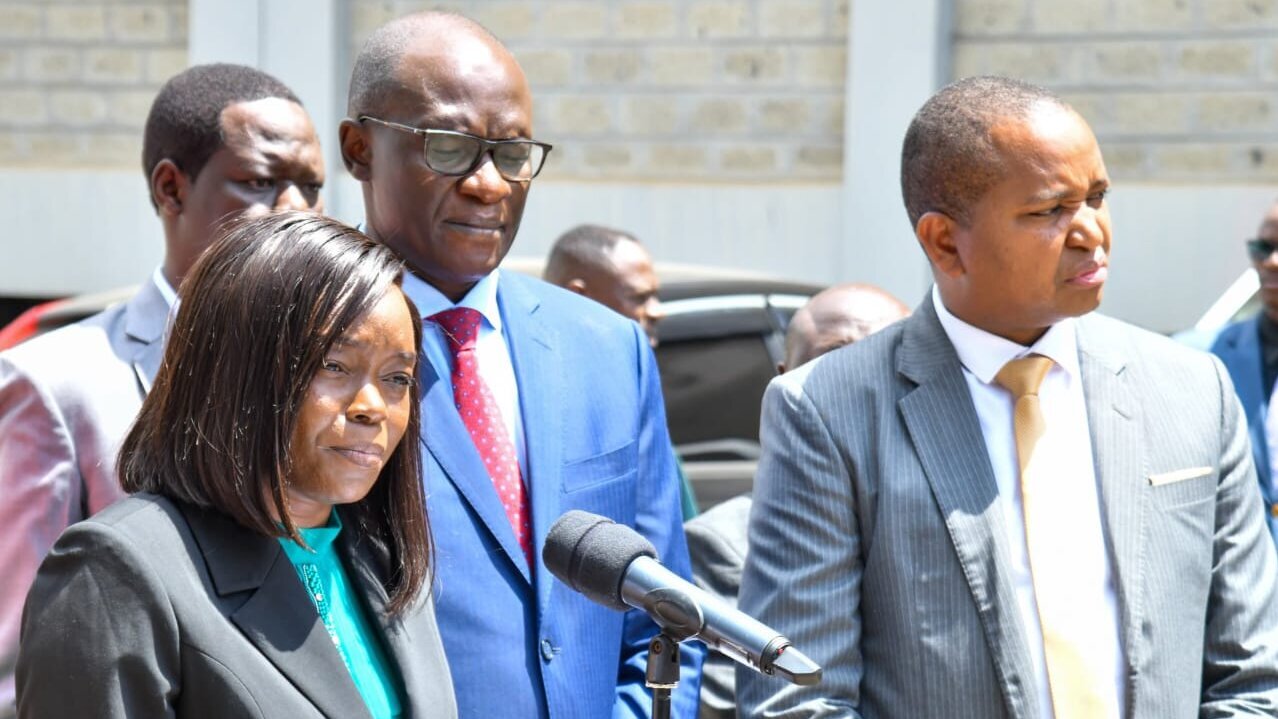Gov't coordinates emergency response measures to combat mpox

CS for Health Deborah Mlongo Barasa (left) in a media briefing on mpox outbreak. Photo/Deborah Mlongo Barasa via X
The government has provided an essential update on the country’s response to the mpox outbreak.
The Cabinet Secretary (CS) for Health Deborah Mlongo Barasa, in a press briefing at the National Public Health Laboratories in Nairobi on Monday, reassured the public that her ministry has outlined the steps taken to combat the disease.
Dr Barasa began by confirming that Kenya’s only recorded case of mpox was reported on July 31, 2024.
“The patient, a 42-year-old male truck driver from Kinoo, Kiambu County, had travelled from Kampala-Uganda to Mombasa-Kenya, on July 12, 2024,” Dr Barasa said.
At the time of detection at the Taveta border point, he was enroute to Rwanda through Tanzania.
Fortunately, the patient has fully recovered from the illness.
Mpox, a zoonotic disease caused by the monkeypox virus, can spread through contact with infected individuals, animals, or contaminated materials.
While the risk from animals in Kenya is deemed low, the primary concern is contact with infected persons or contaminated items such as clothing and utensils.
Globally, the mpox outbreak has notably impacted the Africa region.
In response, the World Health Organisation (WHO) has declared mpox a Public Health Emergency of International Concern (PHEIC), urging enhanced preventive measures.
Likewise, the Africa Centre for Disease Control (CDC) has declared it a Public Health Emergency of Continental Concern, stressing the need for heightened surveillance and rapid response.
Dr Barasa detailed the symptoms of mpox, which include skin rash, fever, headache, muscle aches, back pain, fatigue, and swollen lymph nodes.
The incubation period for the disease ranges from five(5) to 14 days but can vary between one(1) to 21 days.
She urged individuals with recent travel history to affected regions or exposure to suspected cases to monitor for these symptoms and seek prompt medical attention.
The Ministry of Health (MoH) has implemented several key actions to address the outbreak.
The Public Health Emergency Operation Centre and Incident Management System for mpox have been activated to coordinate response efforts.
National Rapid Response Teams are assisting counties with suspected cases, and 25 County Emergency Operation Centres are actively coordinating local responses.
Surveillance has been intensified, with over 300,000 travellers screened and 29 suspected cases tested all of which returned negative results.
Testing continues at the MoH's National Public Health Laboratories domiciled at Kenyatta National Hospital (KNH) in collaboration with Kenya Medical Research Institute (Kemri) and other partners.
Dr Barasa also addressed the media's role in information dissemination, urging caution to avoid the spread of unverified details.
She expressed gratitude to government ministries, departments, agencies, partners, stakeholders, and healthcare workers for their dedicated efforts in managing the public health situation.
In closing, the CS encouraged the public to stay informed, adhere to health guidelines, and follow updates from the MoH to help prevent the spread of mpox.
She promised that the ministry will continue to provide regular updates as new information becomes available.
